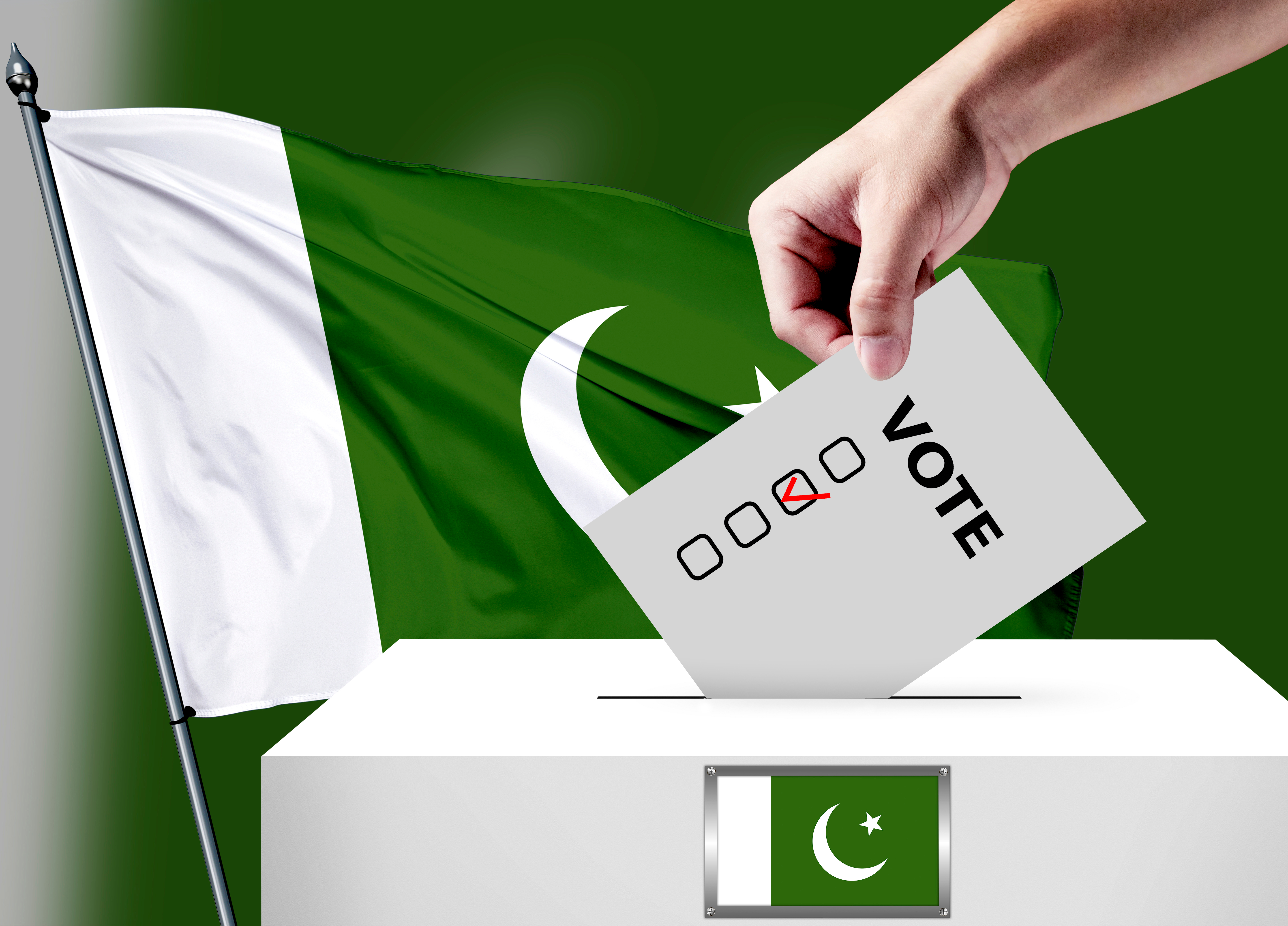To fix a problem, one must get to the root of the issue. Of course, that is often easier said than done. Pakistan’s economy, for example, is perennially in crisis and unable to provide a decent standard of living for many of its 220 million people.
What is the root of the issue? Corruption? Poor governance and suffocating bureaucracy? Awful or non-existent public schools? A massive trade imbalance? Excessive military spending? The answer to all these questions is a resounding yes. But these issues are themselves the result of Pakistan’s lack of inclusive and open political institutions which has prevented Pakistanis from building an accountable government responsive to their needs. The root of the issue is therefore Pakistan’s lack of democracy.
To be clear, democracy does not start or end with elections, though they are an important feature. A true democracy is based on allowing genuine participation in the political system by all relevant stakeholders. It is based on ensuring the consent of the governed through the creation of institutional mechanisms, establishing the rule of law, and ensuring freedom of expression and peaceful association. Only then can a society create political and social institutions that foster strong economic growth, thereby strengthening the fiscal position of the government through increased tax revenue.
To that end, Pakistan will require a bevy of reforms. It must build a public education system that can finally provide all its citizens with a high-quality modern education. But to build vibrant educational institutions, it must first repeal laws that limit the ability of its citizens to express themselves. That is the only way to create an intellectual climate and electorate capable of engaging in the sort of lively debates necessary to formulate policies in a democratic system. It is also the only way to nurture the technological development so crucial to economic growth.
To establish the rule of law, it must build courts that allow for fair and efficient dispute resolution and that can safeguard the property rights of its citizens. It will also need to tear most of its incompetent law enforcement and regulatory agencies down to the studs before rebuilding them. Without the rule of law, neither democracy nor the economy can prosper.
Finally, it will need to empower provincial legislative bodies and devolve power as much as possible to the local level. Pakistan’s people and provinces are simply too diverse to be properly governed by a strong federal government. Diffusing power locally as much as possible is the most logical way to limit resource extraction by distant elites while ensuring citizens have a say in the laws that govern them.
Rather than implement much needed reforms to strengthen its democracy, Pakistan’s newly installed government has opted for loans from China and the IMF and a new “super” tax on certain corporate sectors. Getting loans from allies and international institutions or imposing temporary tax increases may ameliorate Pakistan’s short term financial problems but they do not address their root causes. In fact, they reinforce its problems by taking away the greatest motivation for reform: necessity. So long as Pakistan can access funds from its patrons, its elite will have no incentive to institute the sort of changes that can finally end its seemingly permanent state of poverty and underdevelopment.
The rapid economic growth of countries governed by authoritarian political institutions in East Asia has led some to conclude that democracy is not a vital pre-condition to economic growth. These examples should be viewed as an exception to the general rule established by America, Germany, Israel, and Japan. It is no coincidence that four of the world’s most innovative and prosperous economies feature democratic political systems, strong free speech protections, and well-funded public schools. Nor is it a coincidence that Turkey is one of the Muslim world’s most developed nations given its long experiment with democracy. Even Turkey’s economic and technological weaknesses prove the point, as its history of military coups and authoritarian tendencies likely explain why it is not on the same developmental tier as the four powerhouse nations referenced above.
The evidence can lead to no other conclusion: Pakistan will remain a poor and weak nation until it creates the sort of democratic political institutions required to support and stimulate strong economic growth.
Some within the Muslim world have argued that democracy is an un-Islamic Western import. They are hopelessly misguided. The political institutions created by the Rashidun during the early Islamic era, though not democratic by modern standards, clearly show that democracy is the form of government closest to the Islamic ideal. Conversely, they also show that monarchies and dictatorships are patently un-Islamic. It is no coincidence that the height of Islam’s power came when its leaders were chosen based on their standing in the community rather than their familial relationship to the prior ruler or ability to violently seize or maintain power.
More importantly, the Saudi regime and the Taliban both prove that blindly mimicking institutions and clinging to ideas that are 1400 years old when establishing modern governments is a recipe for hypocrisy, instability, and violence. They also show why religion and politics are such a toxic mix.
The lessons for Pakistan (and by extension, the wider Muslim world) are obvious and have been for a long time. Unfortunately, its military and feudal rulers refuse to listen. Thus, the root of the problem remains unaddressed, causing its various symptoms to spread and choke off development in a variety of ways.
For more implausible and improbable musings about the Muslim world and international affairs, check out my blog: www.mirrorsfortheprince.com

One thought on “Fixing Pakistan’s economy requires fixing its political system first”